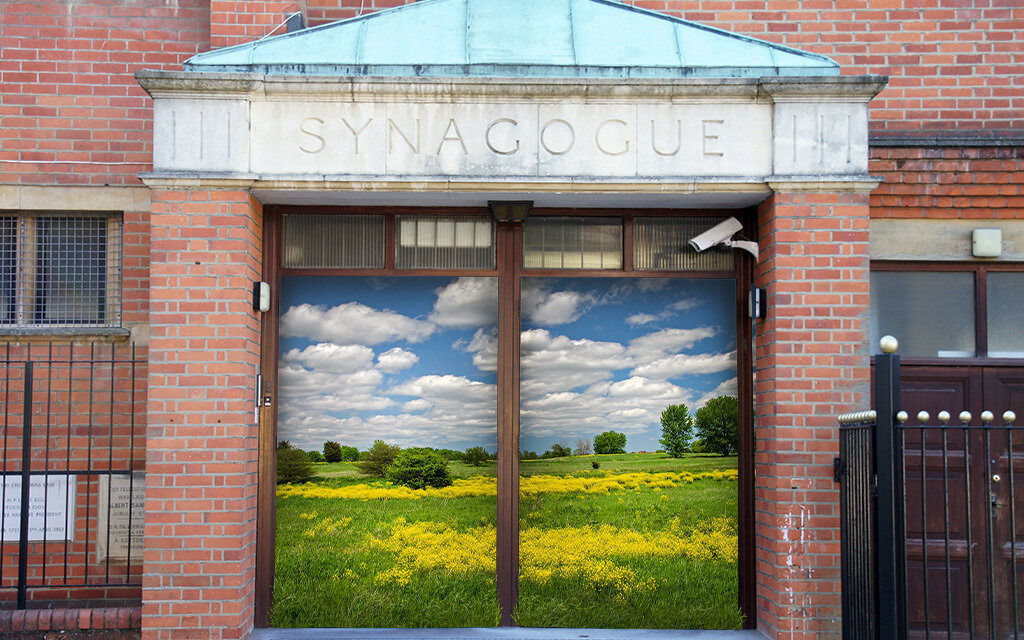
CRI Announces Dr. Rebekah Tokatlilar as Inaugural Chief Program Officer
CRI is proud to announce the addition of Dr. Rebekah Tokatlilar as our inaugural Chief Program Officer. In this role, Dr. Tokatlilar will join Executive Director Rabbi Shira Koch Epstein in supporting CRI’s dramatic growth as the Center implements its Strategic Plan.


Rabbis are struggling to protect Jews’ physical and spiritual health. They deserve support, not shame.
With every change, we see you creating backups to backups, even as it means having to do twice the work, ignoring your exhaustion and pastoring to flocks who require your help as they, too, deal with their justified angst.
My dear colleagues, please know: You are enough. You are doing enough. You can and you must make decisions that are the best and safest you can make, to preserve the lives and the health of your beloved members (and yourselves).



A rabbi focused on innovation takes a pause to evaluate the work
She is now at the helm of the project that has grown out of the Fellowship for Rabbinic Entrepreneurs, originally founded by Rabbi Daniel Smokler, Chief Innovation Officer at Hillel International. The Center for Rabbinic Innovation helps rabbis answer tough questions about the future of Jewish community: How and what is Judaism even going to be? What is a rabbi for, as society changes? As all of the community’s financial models shift, how can I make a living? Every 50 to 100 years, the Jewish community experiences major shifts in how it organizes itself, she said. Such changes were happening even before the coronavirus pandemic hit.
“What we’ve built often doesn’t keep up with where the people are,” Epstein said. Even in 2013, 20% of American Jews did not consider synagogue attendance part of their identity, according to the Pew Research Center’s Portrait of Jewish Americans. “The synagogue is a ‘beit knesset’ in Hebrew — a house of gathering,” Epstein said. “It’s not necessarily a house of prayer. If people are not gathering there to pray, we should figure out what they need.”
“Rabbis had to ask themselves how they were going to be able to talk to people if they weren’t going to show up on Friday and Saturday,” she said. “Actually, we’ve always needed to do that.”

DIY High Holiday Measurement
Working on new projects in a fast-changing environment, leaders frequently are challenged to take the time to learn from their new work. Jewish leaders may neglect or feel ill-equipped to collect and analyze data in a useful way. The shift to online programming by many religious institutions makes it easier and quicker to engage in these data-driven learning processes.
This short guide offers some easy tips for thinking about what kinds of questions to ask and how to use tech to seek out answers to those questions in real time.

Bring your own shovel
This moment of profound disruption has also accelerated a growing need for innovation of the organizing principles of Jewish life. “Innovation” can sometimes be a buzzword, and the pressure to innovate — often required for philanthropic support — can lead organizations and people to take on more and more, sometimes causing them to give short shrift to their core values and responsibilities in the process.
That’s not the form of innovation we need now, at least when it comes to training and supporting rabbis. Though exhausted, we need our rabbis (whether we call them rebbe or rabbah, rabbi or maharat, cantor or rosh kehilah) to inspire visionary transformations of precious, but outmoded community structures that are suddenly proving to be unsustainable or worse obsolete. Today’s innovations must echo the wisdom of our ancestors.

Our rabbis are exhausted. It’s time to adopt a startup mentality.
Jewish spiritual leaders serve on the front lines of a crisis of loss and unimaginable loneliness while stripped of the tools upon which we have relied for thousands of years. As spiritual first responders, we are comforting the sick and dying; facilitating Jewish rituals of mourning and also of celebration across physical distance; distilling Jewish wisdom to help people facing spiritual and existential crises; creating innovative opportunities for ritual and study; facilitating acts of tzedakah and loving-kindness that sustain our people through severe financial distress.
There is no time to prepare. We must be nimble and innovative.
